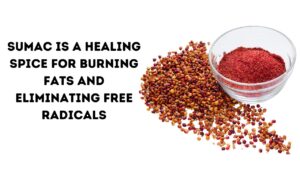Ayurveda is a holistic approach to health designed to help people live long, healthy, and well-balanced lives. The term Ayurveda comes from the Sanskrit words Ayus, meaning life or lifespan, and Veda, meaning knowledge. It has been practiced in the Himalayas and surrounding areas of the world for at least 5,000 years and has recently become popular in Western cultures. The basic principle of Ayurveda is to prevent illness by maintaining balance in the body, mind, and consciousness through proper lifestyle, including eating habits as well as herbal supplements and food-based concentrates.
Doshas
Just as everyone has a unique fingerprint, according to Ayurveda each person has a distinct pattern of energy — a specific combination of physical, mental, and emotional characteristics. There are three basic physiology types, called doshas, present in every person:
• Vata – energy that controls bodily functions associated with motion, including blood circulation, breathing, blinking, and heartbeat. When Vata energy is balanced there is creativity and vitality. Out of balance, Vata produces fear and anxiety. In nature Vata is represented by space, air and wind. This dosha is cold, dry and hard so when Vata is out of
balance the physiology can become too cold and dry.
• Pitta – energy that controls the body’s metabolic systems, including
digestion, absorption, nutrition, and temperature. In balance, Pitta leads to contentment and intelligence. Out of balance, Pitta can cause ulcers and arouse anger. In nature Pitta is represented by fire, or, in the physiology, by an excess of heat which can cause inflammation of both body and mind.
• Kapha – energy that controls growth in the body. It supplies water to all body parts, moisturizes the skin, and maintains the immune system. In balance, Kapha is expressed as love and forgiveness. Out of balance, Kapha leads to insecurity and depression. In nature, Kapha is represented by water — oceans, seas, lakes and rivers. Excess of Kapha causes colds, congestion, edema and heavy weight.
Everyone has Vata, Pitta, and Kapha energy within their physiology, but usually 1 or 2 of the doshas are dominant within each individual. Many things such as stress, unhealthy food, the weather, overwork or strained relationships can disturb the balance of these energies. Initially, such imbalances can be detected through Ayurvedic diagnostic techniques. Ayurveda practitioners recommend gradual changes to bring the doshas back into balance. If not corrected, these imbalances can become worse and eventually show up in the form of various diseases.
From a western medical perspective, stress relief seems to be one of the ways Ayurveda works to help fight illness. Other studies have found that Ayurveda can help lower blood pressure and cholesterol, slow the ageing process, and speed recovery from illness.

What should I expect from an Ayurveda consultation and coaching?
Ayurveda is unlike standard western medical treatment because it focuses on re-balancing the doshas. On your first visit, the practitioner will check your pulse and ask questions about your mental and physical conditions. The practitioner will also take a detailed lifestyle history, asking you questions about your general wellness, paying special attention diet, habits, and surroundings. Having determined imbalances in the patient’s doshas, the practitioner will then recommend ways to restore the natural dosha balance. These frequently include changes in lifestyle. He/she can also recommend certain food choices and combinations though it does not mean you will be dieting. Balancing your physiology with the help of appropriate food and spices and lifestyle changes is often sufficient to restore health.
The best results are achieved if, the after initial consultation, you follow up with coaching sessions at least once a month, or every other week. Coaching is needed to provide patients with support and detailed information about lifestyle, food and supplements. Many details must be taken into consideration. All of them are gradually introduced during the coaching
meetings, either in person or through phone or internet — email and Skype — connections).
What is Ayurveda good for?
Ayurveda is unique in that its primary goal is to prevent rather than cure diseases. Studies have suggested that Ayurveda may be effective at reducing the risk of heart disease. For example, one study found that Ayurveda helps reduce plaque and reverse the thickening of artery walls, known as atherosclerosis, in both healthy adults and those at high risk for heart disease. Ayurveda herbs have been studied as preventive remedies and even for the elimination of many imbalances that do not require medical treatment or surgery. There are thousands of clinical studies worldwide on the benefits of herbs and aromatherapy, showing them to be safe and efficient remedies for everyday aliments and even chronic conditions. For more information, please, see the section Research on Ayurveda on this website.
Disclaimer.
The information in the article should not be considered as medical advice. It is not meant to treat, diagnose or cure any ailment, or prescribe any medication. Always check with your physician before taking any products or following any advice you have read.
Research on Ayurveda
One study examined several components of Maharishi Ayurveda, as compared with normative data and matched control groups. The study found significant reductions in medical care utilization in program participants: overall medical expenditure was 63 percent lower compared to normative data, with 80 percent fewer hospital admissions and 55 percent fewer out-patient doctors’ office visits. Those over the age of 45 using Maharishi Ayurveda had 88 percent fewer hospital days than controls. Analysis by disease categories showed that hospital admission rates were 92 percent lower for immune, endocrine, and metabolic disorders; 92 percent lower for cardiovascular disease; 92 percent lower for mental health and substance abuse, and 94 percent lower for musculoskeletal disorders. American Journal of Managed Care 1997, 3:135-144.
Herbal Supplements
Cardiovascular Diseases
Antioxidant Effects. Maharishi Vedic herbal formulations have been found to provide exceptionally powerful protection against both free radical and non-radical oxidants, which are considered to play a central role in the ageing process and in many disorders, including coronary heart disease, cancer, Alzheimer’s disease, diabetes mellitus, and inflammatory conditions such as rheumatoid arthritis. Free Radicals in Biology and Medicine 1995, 18: 687-697; Pharmacology, Biochemistry & Behavior 1994, 48(2): 505-510; Biochemical Archives 1994, 10: 25-31; Pharmacology, Biochemistry & Behavior 1992, 43: 1175-1182; Biochemical Archives 1992, 8: 267-272; Indian Journal of Clinical Practice 1991, 1: 23-27; Pharmacology, Biochemistry & Behavior 1991, 39: 649-652; Federation of American Societies of Experimental Biology Journal 1995, 9(3): 141; Free Radicals in Diagnostic Medicine: A Systems Approach to Laboratory Technologies, Clinical Correlations, and Antioxidant Therapy (1995, New York: Plenum Press).
Enhanced resistance to lipid oxidation (LDL). A number of Maharishi Vedic herbal preparations were found to be more than a thousand-fold more powerful in preventing oxidation of human LDL cholesterol in vitro than either vitamin C, vitamin E, or probucol. A subsequent clinical study found significantly enhanced resistance of low density lipoproteins to oxidation in human subjects with elevated cholesterol using a Maharishi Vedic herbal supplement. Pharmacology, Biochemistry & Behavior. 1992, 43:1175-1182; Federation of American Societies of Experimental Biology Journal, 1995, 9(3): 141.
Prevention of platelet aggregation. A Maharishi Vedic herbal supplement was found to be highly effective in preventing aggregation of human platelets in response to four different stimuli: catecholamines, which are released during stress; collagen, which is exposed when vascular endothelium is injured; arachidonic acid, which is released from injured cell membranes; and ADP, which is released from injured red blood cells and platelets. Clinica & Terapia Cardiovascolare 1989, 8(3): 227-230.
Improvement in atherosclerosis (animal research). Addition of a Maharishi Vedic herbal supplement to the diet of Watanabe rabbits — a species that is genetically highly susceptible to hyperlipidemia and atherosclerosis — led to 53 percent reduction in coronary artery atherosclerosis and protection from organ damage. Atherosclerosis protection was independent of cholesterol-lowering diet. Biochemical Archives 1997, 13: 285-296; Journal of Alternative and Complementary Medicine 1996, 2(4): 463-478.
Improvement in angina pectoris (human study)
A clinical study of patients with angina pectoris who took two Maharishi Vedic formulations found significant reductions in the frequency of chest pain and need for sub-lingual anti-anginal medication, as well as increased well-being. Journal of the Association of Physicians of India 1994, 42(6): 466-467.
Diabetes
Improvement in diabetes. Patients with non-insulin dependent diabetes mellitus (NIDDM) given a Maharishi Vedic herbal supplement showed improved blood glucose control, as measured by decreased levels of HBA1C, and significant decreases in serum cholesterol and triglycerides, as well as reduced symptoms. Overall, 70.7 percent patients studied achieved good or acceptable diabetic control according to criteria of the American Diabetes Association. Complementary Medicine International, 1996, 3: 21-23.
Chronic Disorders
Improvement in common chronic disorders. In a three-month pilot study, Maharishi Vedic herbal preparations, diet, and behavioral advice led to clear improvement in 79% of 126 subjects with one of ten common chronic disorders (asthma, chronic bronchitis, rheumatoid arthritis, chronic constipation, eczema, psoriasis, hypertension, non-insulin-dependent diabetes, chronic sinusitis and chronic headaches). These patients had suffered from their disorders for an average of 17 years prior to the study and had not gained relief from other forms of treatment. Nederlands Tijdschrift voor Integrale Geneeskunde 5(35): 586-594.
Immune Function: Protection against Chemical Toxicity
Enhanced immune cell functioning.In vitro studies have demonstrated that Maharishi Vedic herbal supplements enhance the response to foreign antigens of two cell types that are fundamental to the immune system, without affecting their properties when not challenged. T lymphocytes showed enhanced proliferation in response to mitogens, together with increased production of interleukin-2, an important immunomodulator. Macrophages showed increased efficiency in killing tumor cells and enhanced production of nitric oxide, which is involved in the elimination of bacteria and cancer cells. Biochemical Archives 1993, 9:365-374; Biochemical Archives 1990, 9:267-274; Japanese Journal of Hygiene 1995, 50: 901-905; Journal of Applied Nutrition 1996, 48(1-2): 10-21; Environmental Health and Preventive Medicine 1997, 2(1): 35-39.
Protection against chemical toxicity.
Maharishi Vedic herbal formulations have been found to protect against tissue damage caused by the chemical solvent toluene, which is a potent inducer of free radicals and important industrial health risk. Biochemical Archives, 1994; 10:25-31; Free Radicals in Biology and Medicine 1995, 18: 687-697; Pharmacology, Biochemistry & Behavior 1994, 48(2): 505-510.
Cancer and Protection against Toxic Effects of Cancer Chemotherapy
Protection against cancer (animal research). In studies on laboratory animals, herbal compounds used in Maharishi Ayurveda reduced the development, growth, spread, and mortality of cancer. In one series of experiments, an herbal supplement used in Maharishi Ayurveda provided up to 88 percent protection against carcinogen-induced breast cancer, with effects during both promotion and initiation phases of carcinogenesis. Also, 60 percent of the control animals that had developed fully-formed tumors showed tumor regression when their diet was subsequently supplemented with the herbal compound. In 50 percent of these animals, the tumors regressed completely. Pharmacology, Biochemistry, and Behavior 1990, 35: 767-773; European Journal of Pharmacology 1990, 183: 193; Nutritional Research 1992, 12: 51-61; Journal of Research and Education in Indian Medicine 1991, 10(3): 1-8.
Reduction in cancer metastases (animal research). This study showed significant reduction in number and size of metastatic nodules in mice with a rapidly-metastasizing form of lung cancer using a Maharishi Vedic herbal supplement. Nutritional Research 1992, 12: 667-676.
Reversal of malignant process (in vitro). Studies showed that a Maharishi Vedic herbal supplement reversed morphological and biochemical changes associated with malignancy in neuroblastoma cells in culture. Neuropharmacology 1992, 31: 599-607.
Inhibition of malignant transformation (in vitro). Laboratory studies reported by the chemopreventive branch of the National Cancer Institute indicated that a Maharishi Vedic herbal supplement inhibits processes of malignant transformation in animal epithelial cells and human lung tumor cells. Proceedings of the American Association of Cancer Research 1991, 32: 128.
Reduced toxic effects of cancer chemotherapy (human study). This controlled prospective study of a Maharishi Vedic herbal supplement was conducted on people receiving combination chemotherapy for various types of cancer, including non-Hodgkin’s lymphoma, ovarian cancer, breast cancer, oral cancer, and osteogenic sarcoma. Chemotherapeutic agents included cyclophosphamide, vincristine, methotrexate, doxorubicin, prednisone, cisplatinum, adriamycin, and 5-fluorouracil. The study found significant reductions in toxic effects of chemotherapy, including reduced vomiting and diarrhea, and improvements in sleep, weight, and overall well-being compared to control patients. In addition, patients taking the herbal preparation showed reduced free radical activity and decreased hematological toxicity, as measured by maintenance of higher leukocyte and platelet counts, compared to the control group. Proceedings of the Sixteenth International Cancer Congress 1994, Vol. 1., pp 3099-3102. Bologna, Italy: Monduzzi Editore.
Protection against toxic effect of chemotherapy.
A Maharishi Vedic herbal supplement was found to enhance the in vitro activity of the glutathione anti-oxidant system, which provides a vital natural defense against toxins. Further investigation showed that the herbal compound also prevented toxic effects of the chemotherapeutic agent cisplatin on this system, enhancing liver and kidney glutathione (gsh) and glutathione-s-transferase (gst) activity.
Proceedings of the XVI International Cancer Congress, 1994, Vol.1, pp 589-592. Bologna, Italy: Monduzzi Editore.
Reduced toxic effects of chemotherapy (animal research). Maharishi Vedic herbal supplements significantly reduced cardiotoxicity and mortality caused by the chemotherapeutic drug adriamycin. Biochemical Archives 1992; 8: 267-272.
Physiological Purification Therapies, Improvement in general health.
A study of subjects participating in the Maharishi Vedic physiological purification therapies found improvements in anxiety, depression, fatigue, vigor, well-being, energy, vitality, stamina, digestive patterns, rejuvenation, and previous complaints, as compared to control subjects. Journal of Social Behavior and Personality 1990; 5: 1-27.
Reduction of cardiovascular risk factors. Other studies on Maharishi Vedic physiological purification therapies have shown improvements in cardiovascular risk factors, including decreased total cholesterol and increased HDL cholesterol; reduced diastolic blood pressure; and decreased free radical activity. Complementary Medicine International 1996; 3: 17-28.




